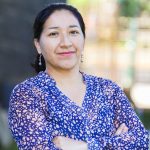Proyectos
- FONDO DE INVESTIGACIÓN INTERDISCIPLINARIA
- Julio 2020 - Junio 2021
FinalizadoMinisterio Federal Alemán para la Colaboración Económica y el Desarrollo (BMZ) a través de la Alianza Internacional contra los Riesgos Sanitarios en el Comercio de Vida Silvestre y coordinado por la GIZ (Gesellschaft für Internationale Zusammenarbeit)
VIGILANCIA ACTIVA MEDIANTE DIAGNÓSTICO MOLECULAR DE SARS-COV-2 EN POTENCIALES RESERVORIOS SILVESTRES
[vc_section el_class="container mx-auto align-items-center circle--pattern" css=".vc_custom_1648956589196{padding-top: 3rem !important;}"][vc_row el_class="pb-5"][vc_column][vc_wp_custommenu nav_menu="6"][uoh_breadcrumb_component automatic_breadcrumb="true"][uoh_title_component title_dropdown="big" title_decorator="true"]{{title}}[/uoh_title_component][vc_column_text css=""]En esta pandemia causada por el virus SARS-CoV-2, nos cuestionamos si ciertas especies de fauna se transformarán en reservorios del virus en nuestro país. Línea base: Se ha detectado positividad en felinos domésticos (Shi y col. 2020, Science eabb7015) y en zoológicos, sugiriendo exposición de las especies nativas, especialmente al incursionar en sectores urbanos, donde la exposición al virus es mayor. Ademas, se ha reportado enfermedad respiratoria causada por SARS-CoV-2 en granjas de visones en Europa, con la consiguiente diseminación del virus a los humanos (Oude Munnink y Col. 2020, Science abe5901). Por otra parte, en murciélagos y roedores se describe infección por distintos virus (Luis y col. 2013 Proc. Biol. Sci. 280: 20122753). Algunas especies tienen un hábitat estrechamente relacionado a las viviendas, lo que facilita que exista spill-over (derrame de patógenos) hacia la población humana; en este caso, dado que son las personas quienes portan el virus en Chile, podría ocurrir spill-back (retorno de los patógenos a los animales o zoonosis reversa) (Daszak y col. 2000, Science 287: 443-449). Las consecuencias en animales silvestres aún no se han investigado en profundidad; podrían ser nefastas si provoca cuadros clínicos debilitantes o mortalidad. En especies consideradas plaga, su infección constituiría un riesgo inminente de diseminación a la población. Con la información a obtener, se podrán establecer protocolos de manejo, difusión y prevención comunitaria para proteger a la biodiversidad y a la población chilena.[/vc_column_text][/vc_column][/vc_row][/vc_section][vc_section css=".vc_custom_1649209804184{background-color: #f6faff !important;}" el_class="p-md-0 pt-md-5"][vc_row el_class="container mx-auto align-items-center p-md-0 pt-5"][vc_column el_class="p-0"][/vc_column][/vc_row][/vc_section][vc_section css=".vc_custom_1649210787516{background-color: #f6faff !important;}" el_class="p-md-0 pt-md-5 pb-md-5"][vc_row el_class="container mx-auto align-items-center"][vc_column][/vc_column][/vc_row][/vc_section]
Investigador/a Responsable
- Resolución exenta N° 2626, 16 de diciembre de 2019
- Julio 2020 - Diciembre 2020
En EjecuciónMinisterio de Desarrollo Social y Familia, Chile
Identification of Causes, Reasons And Solutions for High COVID-19 mortality rate in AGEd populations (CRASH CAGE)
[vc_section el_class="container mx-auto align-items-center circle--pattern" css=".vc_custom_1648956589196{padding-top: 3rem !important;}"][vc_row el_class="pb-5"][vc_column][vc_wp_custommenu nav_menu="6"][uoh_breadcrumb_component automatic_breadcrumb="true"][uoh_title_component title_dropdown="big" title_decorator="true"]{{title}}[/uoh_title_component][vc_column_text css=""]The epidemiology of the coronavirus disease 2019 (COVID-19) have revealed a dramatic
mortality rate in older age groups. Notably, a similar epidemiological pattern was reported with other emerging infections and zoonosis. Further observations have however highlighted substantial differences between countries. By this project, we want to decipher social, epidemiological and biological causes of differences in COVID-19 mortality rates across countries and age groups, convinced that findings may be relevant also for future emerging infection and other zoonosis.
To this aim, we will first embark in an epidemiological analysis to understand sociodemographic factors associated with higher mortality rates. In parallel, we will characterize potential defects in mounting SARS-CoV-2 specific adaptive cellular responses in most-at-risk population (elderly and frail subjects).
These two activities will provide important clues to plan preventive strategies. Indeed,
preliminary results suggest that molecules able to normalize lipid metabolism (which is altered in subjects susceptible to COVID-19) may restore T-cell functionality in the elderly. These molecules will be assessed, in vitro, for their capacity boost CD8+ T cell priming against SARS-CoV-2 in elderly and frail individuals. It is important to note that the effectiveness of preventive measures is strictly related to their compliance and, to this aim, proper communication measures are requested. These will be the focus of our IV activity.
Elderly and frail subjects constitute a population which should be proactively targeted in
preventive strategies against second waves of COVID-19 but also against outbreaks of future/new emerging infections and zoonosis.[/vc_column_text][/vc_column][/vc_row][/vc_section][vc_section css=".vc_custom_1649209804184{background-color: #f6faff !important;}" el_class="p-md-0 pt-md-5"][vc_row el_class="container mx-auto align-items-center p-md-0 pt-5"][vc_column el_class="p-0"][/vc_column][/vc_row][/vc_section][vc_section css=".vc_custom_1649210787516{background-color: #f6faff !important;}" el_class="p-md-0 pt-md-5 pb-md-5"][vc_row el_class="container mx-auto align-items-center"][vc_column][/vc_column][/vc_row][/vc_section]
Co-Investigador/a
- Resolución exenta N° 2626, 16 de diciembre de 2019
- Julio 2020 - Diciembre 2020
En EjecuciónMinisterio de Desarrollo Social y Familia, Chile
Modern Design & Interactive Teaching Methods, MoDITeM for virtual training
[vc_section el_class="container mx-auto align-items-center circle--pattern" css=".vc_custom_1648956589196{padding-top: 3rem !important;}"][vc_row el_class="pb-5"][vc_column][vc_wp_custommenu nav_menu="6"][uoh_breadcrumb_component automatic_breadcrumb="true"][uoh_title_component title_dropdown="big" title_decorator="true"]{{title}}[/uoh_title_component][vc_column_text css=""]At present the planet is facing a global disease caused by COVID-19, that has been classified as a pandemic by the World Health Organization (WHO). In this exceptional context, WHO recommends quarantine and social distance for reduce spreading, diseases and deaths among the population.1 One of the main effects of these measures is the interruption of classes at schools, colleges and universities, with students at home.1 The impossibility of presential classes interrupted the educational and communication processes, that are very important in this situation of uncertainty, lack of information and fake news.2 For that reason, technology and virtual education are essentials for adaptive learning and also a new way to access from everywhere through mobile devices.3 Nevertheless, it could imply improvisation with a lot of trial and error, increasing inequality between students that could afford a better education and those who not.4
On the other hand, implications beyond the healthcare domain - which have placed global sustainable development under threat - highlight the need for the One Health transdisciplinary approach5,6 to tackle the situation7. However, the integration of different disciplines is still a challenge for global health.6 Therefore, capacity building among students in this direction should be promoted.8
Within this scenario, this pilot course on Modern Design & Interactive Teaching Methods, MoDITeM is designed under the train-the-trainers concept to provide educators in the field of health and other disciplines a methodological framework and didactic teaching methods to develop their own virtual teaching. Teaching methods will promote inter-professional and transdisciplinary learning. Thus, we will contribute to cope not only with challenges in this abrupt change to virtual education for the isolated student population in Covid's quarantine, but also to promote the search for comprehensive solutions to local problems in the future.
The pilot project will be implemented in partner universities in three Latin American countries and one African country, strengthening the South-South collaboration network. Also, it will permit to reach people far away from main cities, improving the socialization of knowledge and equal opportunities for the population. It will allow to improve skills in teaching methods, research communication and sharing knowledge with peers in an LA and African settings, spreading the OH approach and its sustainability.[/vc_column_text][/vc_column][/vc_row][/vc_section][vc_section css=".vc_custom_1649209804184{background-color: #f6faff !important;}" el_class="p-md-0 pt-md-5"][vc_row el_class="container mx-auto align-items-center p-md-0 pt-5"][vc_column el_class="p-0"][/vc_column][/vc_row][/vc_section][vc_section css=".vc_custom_1649210787516{background-color: #f6faff !important;}" el_class="p-md-0 pt-md-5 pb-md-5"][vc_row el_class="container mx-auto align-items-center"][vc_column][/vc_column][/vc_row][/vc_section]
Co-Investigador/a
- Resolución exenta N° 2626, 16 de diciembre de 2019
- Julio 2020 - Diciembre 2020
En EjecuciónMinisterio de Desarrollo Social y Familia, Chile
One Health Knowledge Café
[vc_section el_class="container mx-auto align-items-center circle--pattern" css=".vc_custom_1648956589196{padding-top: 3rem !important;}"][vc_row el_class="pb-5"][vc_column][vc_wp_custommenu nav_menu="6"][uoh_breadcrumb_component automatic_breadcrumb="true"][uoh_title_component title_dropdown="big" title_decorator="true"]{{title}}[/uoh_title_component][vc_column_text css=""]Virtual learning and networking is an effective approach to develop and build on scientific knowledge and professional skills. In 2020, the global community is affected by Coronavirus Disease (COVID-19) limiting peoples ability to travel and meet face to face due to the pandemic problem. Learning from different countries and about various aspects of COVID-19 is even more important and relevant. Countries, professionals and researchers will be able to learn from each other and to contribute in the effort of combating the problem of COVID-19 by establishing better linkages with researchers and professionals from different countries and experts from different fields.
The Center for International Health of Ludwig Maximilians University has a wide network of institutions and individuals throughout the continents and with different expertise and skill sets. This network and strength of individuals and institutions can be enhanced for a global effort of combating the pandemic by exchanging knowledge, skills and ideas. We propose a simple approach of facilitating the network and knowledge sharing by utilizing the CIHs 2020 Call for Proposals on One Health Funds.
Through this project, OH-Knowledge Cafe, we will bring together the expertise and network of researchers and professionals from various disciplines, countries and expertise to enable cross learning, sharing and network building. The project will ensure that funding and contribution from the CIHLMU /DAAD/BMZ and network partners will be duly acknowledged in all events and products developed.[/vc_column_text][/vc_column][/vc_row][/vc_section][vc_section css=".vc_custom_1649209804184{background-color: #f6faff !important;}" el_class="p-md-0 pt-md-5"][vc_row el_class="container mx-auto align-items-center p-md-0 pt-5"][vc_column el_class="p-0"][/vc_column][/vc_row][/vc_section][vc_section css=".vc_custom_1649210787516{background-color: #f6faff !important;}" el_class="p-md-0 pt-md-5 pb-md-5"][vc_row el_class="container mx-auto align-items-center"][vc_column][/vc_column][/vc_row][/vc_section]
Co-Investigador/a
- BIP 40014269
- Junio 2020 - Junio 2022
FinalizadoGobierno Regional - GORE
Mapa de reservas de aguas subterráneas en el Limarí
[vc_section el_class="container mx-auto align-items-center circle--pattern" css=".vc_custom_1648956589196{padding-top: 3rem !important;}"][vc_row el_class="pb-5"][vc_column][vc_wp_custommenu nav_menu="6"][uoh_breadcrumb_component automatic_breadcrumb="true"][uoh_title_component title_dropdown="big" title_decorator="true"]{{title}}[/uoh_title_component][vc_column_text css=""]Objetivo general: contribuir con información y metodología de estudio inexistente sobre la ubicación y la estimación de las reservas en agua subterránea para descubrir nuevos acuíferos, monitorear y gestionar su rol hídrico, especialmente en periodo de sequía, en la cuenca de Limarí, en la Región de Coquimbo. Objetivos específicos: (i) identificar áreas donde los acuíferos se encuentran bajo fuertes presiones antropogénicas o naturales y donde hay un alto grado de incertidumbre sobre los recursos subterráneos; (ii) en cada punto identificado, evaluar el contenido en agua de los acuíferos, sus bases y sus techos con la técnica de Magnetic Resonance Sounding (MRS); (iii) contribuir en la elaboración de una metodología para determinar las reservas en agua subterránea; (iv) construir un modelo tridimensional de las reservas de agua subterránea presentes en la región; (v) diseñar un plan que permita monitorear y gestionar eficientemente los acuíferos de la zona como recurso hídrico económico-social de la cuenca del Limarí.[/vc_column_text][/vc_column][/vc_row][/vc_section][vc_section css=".vc_custom_1649209804184{background-color: #f6faff !important;}" el_class="p-md-0 pt-md-5"][vc_row el_class="container mx-auto align-items-center p-md-0 pt-5"][vc_column el_class="p-0"][/vc_column][/vc_row][/vc_section][vc_section css=".vc_custom_1649210787516{background-color: #f6faff !important;}" el_class="p-md-0 pt-md-5 pb-md-5"][vc_row el_class="container mx-auto align-items-center"][vc_column][/vc_column][/vc_row][/vc_section]
Co-Investigador/a
- GVB
- Junio 2020 - Noviembre 2026
AdjudicadoFundación Universidad de Las Palmas de Gran Canaria
Garoé Varas Becerril
[vc_section el_class="container mx-auto align-items-center circle--pattern" css=".vc_custom_1648956589196{padding-top: 3rem !important;}"][vc_row el_class="pb-5"][vc_column][vc_wp_custommenu nav_menu="6"][uoh_breadcrumb_component automatic_breadcrumb="true"][uoh_title_component title_dropdown="big" title_decorator="true"]{{title}}[/uoh_title_component][vc_column_text css=""]https://www.mothersinscience.com/[/vc_column_text][/vc_column][/vc_row][/vc_section][vc_section css=".vc_custom_1649209804184{background-color: #f6faff !important;}" el_class="p-md-0 pt-md-5"][vc_row el_class="container mx-auto align-items-center p-md-0 pt-5"][vc_column el_class="p-0"][/vc_column][/vc_row][/vc_section][vc_section css=".vc_custom_1649210787516{background-color: #f6faff !important;}" el_class="p-md-0 pt-md-5 pb-md-5"][vc_row el_class="container mx-auto align-items-center"][vc_column][/vc_column][/vc_row][/vc_section]
Co-Investigador/a
- NCS2021_14
- Junio 2020 - Enero 2021
FinalizadoAgencia Nacional de Investigación y Desarrollo - ANID
Predictores socioeconómicos y psicobiológicos del desempeño académico en estudiantes de primer año de pedagogía
[vc_section el_class="container mx-auto align-items-center circle--pattern" css=".vc_custom_1648956589196{padding-top: 3rem !important;}"][vc_row el_class="pb-5"][vc_column][vc_wp_custommenu nav_menu="6"][uoh_breadcrumb_component automatic_breadcrumb="true"][uoh_title_component title_dropdown="big" title_decorator="true"]{{title}}[/uoh_title_component][vc_column_text css=""]aaaa[/vc_column_text][/vc_column][/vc_row][/vc_section][vc_section css=".vc_custom_1649209804184{background-color: #f6faff !important;}" el_class="p-md-0 pt-md-5"][vc_row el_class="container mx-auto align-items-center p-md-0 pt-5"][vc_column el_class="p-0"][/vc_column][/vc_row][/vc_section][vc_section css=".vc_custom_1649210787516{background-color: #f6faff !important;}" el_class="p-md-0 pt-md-5 pb-md-5"][vc_row el_class="container mx-auto align-items-center"][vc_column][/vc_column][/vc_row][/vc_section]
Co-Investigador/a
- FOVI240178
- Junio 2020 - Enero 2021
FinalizadoUniversidad de O'Higgins
Predictores socioeconómicos y psicobiológicos del desempeño académico en estudiantes de primer año de pedagogía
[vc_section el_class="container mx-auto align-items-center circle--pattern" css=".vc_custom_1648956589196{padding-top: 3rem !important;}"][vc_row el_class="pb-5"][vc_column][vc_wp_custommenu nav_menu="6"][uoh_breadcrumb_component automatic_breadcrumb="true"][uoh_title_component title_dropdown="big" title_decorator="true"]{{title}}[/uoh_title_component][vc_column_text css=""]aaaa[/vc_column_text][/vc_column][/vc_row][/vc_section][vc_section css=".vc_custom_1649209804184{background-color: #f6faff !important;}" el_class="p-md-0 pt-md-5"][vc_row el_class="container mx-auto align-items-center p-md-0 pt-5"][vc_column el_class="p-0"][/vc_column][/vc_row][/vc_section][vc_section css=".vc_custom_1649210787516{background-color: #f6faff !important;}" el_class="p-md-0 pt-md-5 pb-md-5"][vc_row el_class="container mx-auto align-items-center"][vc_column][/vc_column][/vc_row][/vc_section]
Investigador/a Responsable
- MSM2021003
- Junio 2020 - Enero 2021
FinalizadoUniversidad de O'Higgins
Predictores socioeconómicos y psicobiológicos del desempeño académico en estudiantes de primer año de pedagogía
[vc_section el_class="container mx-auto align-items-center circle--pattern" css=".vc_custom_1648956589196{padding-top: 3rem !important;}"][vc_row el_class="pb-5"][vc_column][vc_wp_custommenu nav_menu="6"][uoh_breadcrumb_component automatic_breadcrumb="true"][uoh_title_component title_dropdown="big" title_decorator="true"]{{title}}[/uoh_title_component][vc_column_text css=""]aaaa[/vc_column_text][/vc_column][/vc_row][/vc_section][vc_section css=".vc_custom_1649209804184{background-color: #f6faff !important;}" el_class="p-md-0 pt-md-5"][vc_row el_class="container mx-auto align-items-center p-md-0 pt-5"][vc_column el_class="p-0"][/vc_column][/vc_row][/vc_section][vc_section css=".vc_custom_1649210787516{background-color: #f6faff !important;}" el_class="p-md-0 pt-md-5 pb-md-5"][vc_row el_class="container mx-auto align-items-center"][vc_column][/vc_column][/vc_row][/vc_section]
Co-Investigador/a
- FONDECYT REGULAR 1241502
- Mayo 2020 - Marzo 2023
FinalizadoGobierno Regional - GORE
Transferencia Ecoinnovación Agroalimentaria Regional de O’Higgins
[vc_section el_class="container mx-auto align-items-center circle--pattern" css=".vc_custom_1648956589196{padding-top: 3rem !important;}"][vc_row el_class="pb-5"][vc_column][vc_wp_custommenu nav_menu="6"][uoh_breadcrumb_component automatic_breadcrumb="true"][uoh_title_component title_dropdown="big" title_decorator="true"]{{title}}[/uoh_title_component][vc_column_text css=""]Implementar un sistema de Ecoinnovación agroalimentaria regional, que permita a partir de la gastronomía, relacionar actores y entorno de una nueva forma, para mejorar la competitividad y valor de la cadena a nivel regional.
Actores de la cadena agroalimentaria articulados a través de una Comunidad de Práctica, funcionando y gestionada por la UOH y un Centro de Interpretación Gastronómico implementado y gestionado por ASEGMI.
Cadena agroalimentaria mejora su competitividad a partir de nuevos canales de comercialización (alianzas comerciales, puntos de venta y plataforma comercial); nuevas formas de promoción (ferias campesinas y escolares y encuentros gastronómicos eco innativos, basados en el ecodiseño sistematizadas), nuevos productos y envasados y un Sello de verde regional para restaurantes, basado en la calidad y uso de prácticas de eco innovación para potenciar la imagen región y el turismo gastronómico.
Campaña de activación comunicacional promoviendo la eco innovación en pleno funcionamiento, gestionada por ASEGMI.
Laboratorio de eco innovación agroalimentaria creado al interior de la UOH con sus líneas de investigación, capacitación y extensión en pleno funcionamiento[/vc_column_text][/vc_column][/vc_row][/vc_section][vc_section css=".vc_custom_1649209804184{background-color: #f6faff !important;}" el_class="p-md-0 pt-md-5"][vc_row el_class="container mx-auto align-items-center p-md-0 pt-5"][vc_column el_class="p-0"][/vc_column][/vc_row][/vc_section][vc_section css=".vc_custom_1649210787516{background-color: #f6faff !important;}" el_class="p-md-0 pt-md-5 pb-md-5"][vc_row el_class="container mx-auto align-items-center"][vc_column][/vc_column][/vc_row][/vc_section]
Investigador/a Responsable







